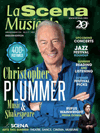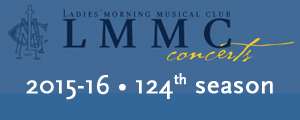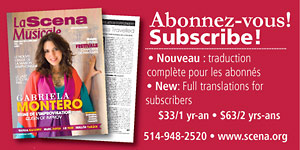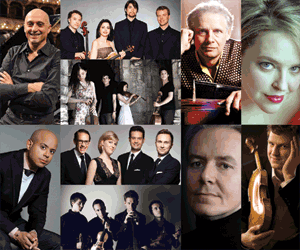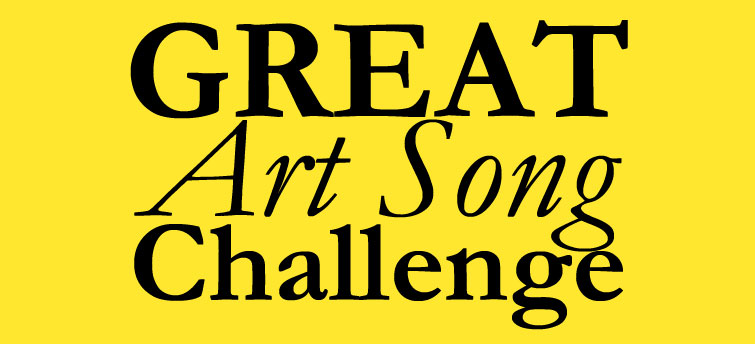Review by Paul E. RobinsonClassical TravelsTHIS WEEK IN TEXAS

In 2006, while he was gearing up to take over as the Met’s general manager, Peter Gelb stated that one of his major goals was to “broaden the audience and make it younger at the same time.” He also made it clear that he believed the way to do this was to make more extensive use of new technology and bring in directors from film and Broadway who could bring the quality of the theatrical experience at the Met up to the level of its singing and orchestral playing.
Three years later and we are beginning to get a sense of Gelb’s achievements. He has certainly made use of technology by making Met HD Live a widely-appreciated fact of life along with more extensive use of broadcasts of Met performances on Sirius Satellite Radio. These innovations have doubtlessly won thousands of new listeners for the Met. On the other hand, while new stage directors have been brought in to shake things up, their work has often been disappointing. The latest offering, Gluck’s Orfeo ed Euridice with choreographer Mark Morris doubling as stage director, is yet another recent Met production notable both for its silliness and its extravagance.
Big Hall the Wrong Way to Go With Orfeo
The first question that needs to be asked is why a small-scale classical opera from 1762 is being performed in a house seating 3,800 people? This is an opera designed for small theaters of the sort that were the norm in the mid-Eighteenth Century. Gluck’s orchestra was small – no more than 30 players – and there would have been a small chorus and dancers and only three solo singers. In the Met production, conductor James Levine was true to period style in limiting the size of his orchestra, but this nod to scholarship only served to underline the absurdity of the situation; such a small orchestra can barely be heard in such an enormous space. So the whole project is misconceived from the start.
Choreographer as Director Should Have Worked Well
Next, someone familiar with the piece decided that while it is not hard to find solo singers and a chorus to do justice to Orfeo, it is much harder to figure out how to deal with all the dancing required in the piece. Not only is there a lot of it, but it is even harder to figure out correct period style for dance than it is for music. In the latter case, at least we have the instruments from the period to give us some clues.
It is a worthy idea, therefore, to put a choreographer in charge of staging Orfeo, but only if that choreographer has made a study of Eighteenth Century dance style. Unfortunately, Mr. Morris gave no indication whatsoever that he knew anything about this subject. What is more, he appeared to take the view that it didn’t matter anyway; he was quite prepared to do as he pleased. And so he did. The result was a mishmash of classical and modern dance clichés.
One particular dance sequence – the scene in the Elysian Fields – appeared to be borrowing from the iconic Monty Python skit dealing with the Ministry of Silly Walks; it was that awkward and risible.
Patchwork Costumes & Hollywood Squares Set Design
In this production, as in too many recent Met productions, we had the patchwork costume problem. Although Isaac Mizrahi was credited with “designing” them, once again the costumes appeared to have been put together by the cast members themselves, perhaps rifled on their way to work from bags intended for Good Will.
Superfluous and expensive sets are also a trademark Met feature. This week we had an enormous steel fire escape-type structure lowered into place from the flies. Stephanie Blythe as Orfeo walked up to the first level of this contraption, then back down again. And away it went never to be seen again!
There now appears to be a full-fledged Hollywood Squares school of set design ensconced at the Met. We saw it earlier this season in “Le Damnation de Faust” and “Dr. Atomic,” and now in Orfeo ed Euridice. The basic concept is to have people seated in cubicles three or four tiers high staring out at the audience.
In this production, the people were made up and costumed in all different ways to suggest well-known folks from the past. It was hard to tell exactly who was whom, but I thought I saw the likenesses of Henry VIII, Ghandi, Elizabeth I and Abraham Lincoln.
The general idea, according to director Morris, is that these are ‘dead people’ looking on as interested observers as Orfeo attempts to bring the dead Euridice back to the land of the living. On a more practical level, it was a way for the director to keep his busy chorus on stage and make them somehow part of the action. From time to time these dead personages made stylized and incomprehensible gestures. Some of these gestures even appeared to resemble similar gestures made by the dancers on stage. The one that particularly puzzled me was in the manner of holding an invisible beachball. The gospel lyric “He’s got the whole world in his hands” comes to mind. Perhaps again Morris was invoking something from Monty Python.
Vocal Brilliance and Orchestral Precision Don’t Save the Day!
On the musical side, this production fared much better. Mezzo-soprano Stephanie Blythe has the ideal voice for Orfeo. It was effortless and beautiful from top to bottom. Danielle De Niese and Heidi Grant Murphy were very good in the other roles. James Levine made little effort to approximate period style but he and his players contributed immaculate precision and expressive phrasing.
I have often complained in the past that on Met broadcasts the orchestra is recorded at a much lower level than the singers, much to the detriment of the score as a whole. This was not the case with Orfeo. In fact, we had the opposite problem; as if to compensate for its size, the little chamber orchestra positively boomed out of the speakers while the voices appeared to be recorded at just the right volume.
In summary, this opera has no business being presented in a huge theater like the Met and a production this misguided made the worst possible case for it.
On the basis of what I have seen so far this season, I am not surprised that ticket sales have fallen and that Gelb has been forced to cancel or replace four productions planned for next season. The current and global economic mess is mostly to blame, but it doesn’t help that artistic judgment is lacking, that poor directors are hired over and over again and that vast amounts of money are being wasted on dreadful productions.
To be fair, we did see a terrific Salome earlier this season. Still to come are Lucia di Lammermoor with Netrebko and Villazon (Feb. 7), and La Sonnambula with Dessay and Florez (March 21), and ‘hope,’ after all, springs eternal.
Paul E. Robinson is the author of Herbert von Karajan: the Maestro as Superstar and Sir Georg Solti: his Life and Music, both available at http://www.amazon.com.
 Classical Music Blogs
Classical Music Blogs 
Labels: classical music, Gluck, James Levine, Mark Morris, Met in HD, Metropolitan Opera, Orfeo ed Euridice, Stephanie Blythe
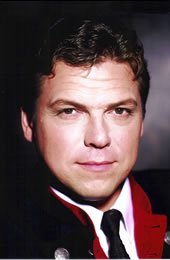 Tenor Michael Schade
Tenor Michael Schade

